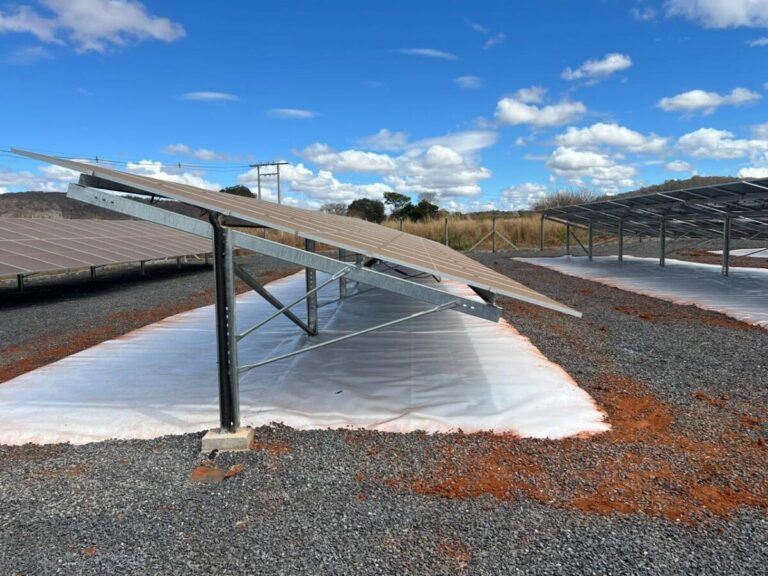Azul Pack has developed a new reflective membrane to increase Albedo and energy yield in photovoltaic plants with bifacial modules. In a fixed structural factory in Minas Gerais, the technology reportedly resulted in an increase of 7% energy at the inverter.
Brazilian plastic manufacturer Azul Pack has developed a reflective membrane for bifacial solar energy plants.
The solution is intended to increase Albedo and to optimize energy production in micro and mini generation projects, as well as large-scale facilities.
The new product is available in two versions called TechReflex Geo and TechRreflex film. While the first has a width of 5.9 to 20 meters and a thickness of 1.00 µm, tech reflex films of 4 to 20 meters and a thickness of 250 µm. There is also the possibility to adjust the membrane according to the needs of the project.
The solution has already shown results in photovoltaic plants in operation. According to Leonardo Oliveira, the founder of Albedo Power Flex, the company that distributed the products in the Brazilian market, the technology was used in a factory with a fixed structure in January, Minas Gerais, where the energy line reached 7% at the output of the inverter. “If there was an integrated battery, efficiency could increase to 10.5%. In plants with trackers, this increase can be even greater and reach 15%, “he explained.
One of the benefits of reflective blankets, says Oliveira, is an increased energy efficiency, in which a high surface reflection increases that lighting increases due to bifacial modules, even in cloudy conditions. In addition, the blanket protects the soil by preventing the growth of weeds, minimizing the need for mowing and vegetation control and lowers maintenance costs, because the erosion occurs and protects the foundations of solar plants.
The product has a useful lifespan of up to 20 years and a guarantee of ten years and is manufactured with inert materials that do not react chemically to the ground.
To guarantee the scientific validation and continuous improvement of the efficiency of reflective membranes, Albedo Power Flex and Azul Pack monitoring studies have been carried out in collaboration with the Federal University of Santa Catarina (UFSC). The results of this collaboration will help to further optimize the performance and sustainability of the product, which strengthens its application on the Brazilian solar market.
Albedo, also known as solar reflection, is the ratio between the radiation that is reflected by a surface and the incident global solar radiation. In the photovoltaic context, the use of reflective membranes improves this reflection, which increases the amount of light used by the bifacial modules, resulting in greater energy generation. This phenomenon is measured by an albedometer, an instrument equipped with two pyranometers that analyze global and reflected radiation.
The yield of a bifacial photovoltaic system depends on various parameters of the plant, such as shade, distance between rows, soil type, modulemodel and height of the structure (fixed or tracker). However, the most relevant and location -specific factor is the soil reflectivity or albedo, which is the ratio between receiving and reflected light. The natural albedo of the soil in solar energy plants rarely exceeds 20%, which limits the efficiency of bifacial systems.
This content is protected by copyright and may not be reused. If you want to work with us and reuse part of our content, please contact: editors@pv-magazine.com.


